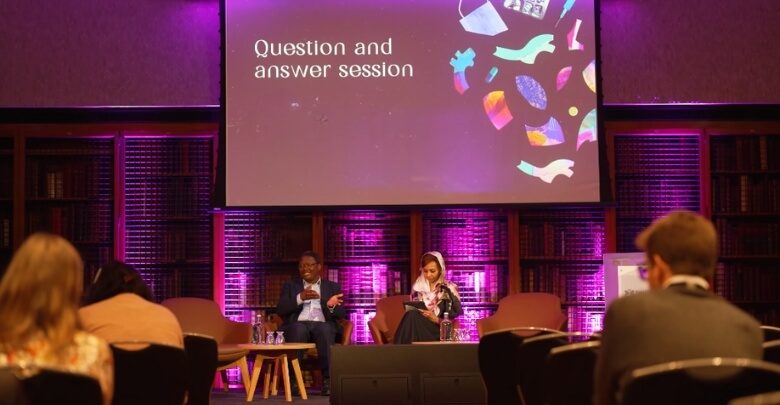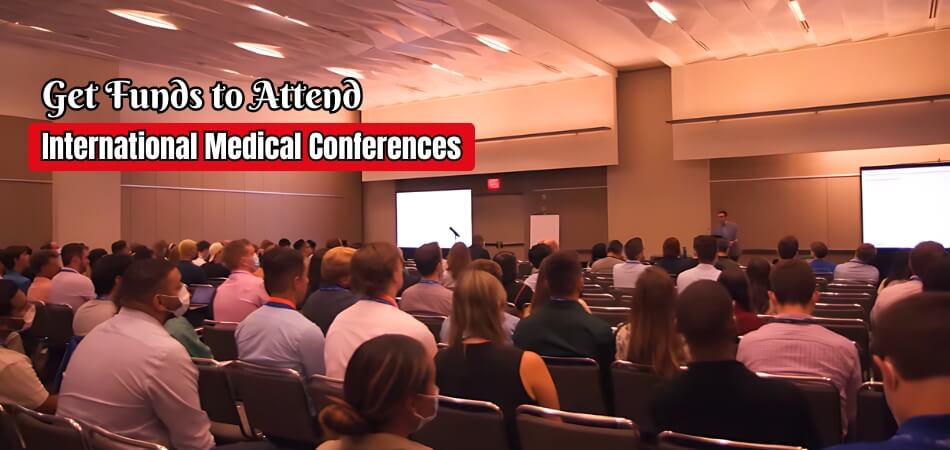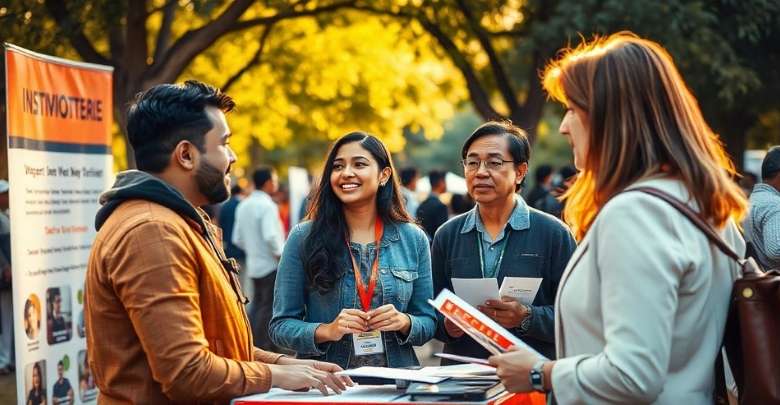International medical conferences are great for keeping up with the latest advances, networking with global experts, and learning new stuff. However, the cost of attending these conferences can be a significant barrier. If you are planning to attend this conference, a question that can come up in your mind is: Can I get funds to attend international medical conferences?
Yes, you can get funds to attend international medical conferences through various sources like grants, institutional support, and sponsorship from professional organizations or employers.
These opportunities can help reduce the financial burden and allow you to gain valuable experience. For more information on how to access these resources and plan your trip to international conferences, continue reading our detailed article.
Why Are International Medical Conferences So Popular?
International medical conferences have gained immense popularity due to their role in strengthening global collaboration among healthcare professionals. These conferences are a hub for sharing groundbreaking medical research and innovations. During this event, attendees get to meet with experts and learn about the latest trends.
These conferences provide an unparalleled opportunity for doctors and researchers to develop their skills and learn new things. By attending an international medical conference, participants can also expand their network beyond geographical boundaries. They gain professional experience by connecting with peers who have similar interests and challenges.
It serve as a starting point for new healthcare initiatives and policies. As participants progress through the program, attending conferences as a medical student helps them acquire enhanced knowledge and practical solutions for their clinical practices. With such a continuous learning environment in place, innovation and collaboration are encouraged among medical professionals.
Can I Get Funds to Attend International Medical Conferences?
Yes, you can indeed secure funds to attend international medical conferences. Multiple avenues exist to help cover the costs, especially in Canada, from scholarships to institutional support. Several organizations recognize the value of these conferences in advancing medical knowledge. Here is a detailed explanation of this query.
Seeking Grants from Medical Associations
Canadian medical associations often offer grants to support continuing education. These grants can cover travel, registration, and accommodation. Check the association’s website for application guidelines. Maintain membership in relevant associations to increase your chances of receiving grants.
Utilizing Institutional Support
Talk to your employer or academic institution about funding options. Some hospitals and universities allocate funds for professional development. They may fully or partially sponsor your attendance. Let the institution know what value your participation will bring.
Gaining Sponsorships from Industry Partners
Make contact with companies that benefit from the research or practice area covered by your conference. Offer a sponsorship deal that includes post-conference deliverables.
Be prepared to represent the sponsor professionally at the event. Effective networking can open doors to these opportunities.
Crowdfunding Campaigns
Set up a crowdfunding campaign to raise money for the conference. Communicate the conference’s significance and your goals. Use social media platforms to amplify your fundraising message. Engaging storytelling can attract more donors.
Applying for Travel Grants
Many foundations and educational institutions offer travel grants to professionals in Canada. These are particularly useful for international attendees. If you are planning to attend upcoming medical conferences in Canada 2024 travel grants can notably help you budget for your international conference. In most cases, you’ll need to explain why the conference is relevant to you. Also, make sure you get letters of recommendation.
Who Can Provide You With Funds to Attend an International Conference?
Taking part in an international conference can be a life-changing experience for professionals. But the main challenge is funding to attend this conference. Fortunately, several reliable sources are available to help manage the expenses. Below is a detailed explanation of it.
Academic Institutions
Professional development funds are often available at universities. These funds can cover travel, registration, and accommodation. Departments can apply on behalf of professors and researchers. Be sure to check the policies and deadlines of your institution.
Medical Associations
There are lots of medical associations that give grants for conference attendance. These grants support networking and continuing education. You can get more chances if you join these associations. Visit their websites for details on eligibility and applications.
Industry Sponsors
The company you work for might sponsor your attendance. You give them exposure through your participation. Make a sponsorship proposal that includes a post-conference report or presentation. By building a professional relationship, you are likely to receive future support.
Government Grants
Government agencies sometimes offer grants for educational travel. These grants can be competitive but worth pursuing. Applications usually require detailed plans and justifications. Keep an eye on deadlines and the required documentation.
How to Request Funds to Attend an International Medical Conference?
You can gain a lot of knowledge and make a lot of new friends at international medical conferences. However, financing the trip often requires external support. Here’s how you can request funds to take part in this rewarding conference.
Step 1: Identify Potential Funding Sources
You should begin by researching potential sponsors. Academic institutions, professional associations, and healthcare companies are common supporters. Be familiar with the type of support they provide, including full or partial funding.
Step 2: Prepare a Detailed Proposal
Your funding request should include a clear, concise proposal. Indicate the importance of attending the conference to your professional development and, at the same time, how it will benefit your sponsor. Highlight the relevance of the conference to your field of work or study.
Step 3: Gather Necessary Documents
Collect all the required documents to support your funding request. This might include your CV, letters of recommendation, and conference registration proof. Be sure that all documents are up-to-date and accurately reflect your qualifications. Organizing these materials neatly and professionally can make a strong impression.
Step 4: Submit Applications Early
Don’t miss the deadline for submitting your applications. This shows your commitment and organizational skills. When a committee reviews requests, early submissions stand out more. Submitting your application early also allows for any unexpected delays in processing.
Step 5: Follow up Respectfully
Whenever you submit your request, wait a reasonable amount of time, then follow up. A polite inquiry about the status of your application can keep you on the radar of the funders without interfering with their privacy. It also demonstrates your interest in the funding opportunity and helps build a professional relationship.
What to Do if Your Funding Request Is Denied?
Receiving a denial for your funding request can be disappointing, but it’s important to approach the situation constructively. Here are some steps you can take to move forward effectively.
Review the Denial Letter
First, carefully review the denial letter to understand the reasons behind the decision. Take note of any specific feedback provided, as this information can be invaluable for your next steps. Understanding why your application was denied will help you identify areas that need improvement. It also allows you to address any concerns in future applications.
Seek Clarification
If the reasons for denial are unclear, don’t hesitate to reach out to the funding organization for clarification. A polite inquiry can provide you with additional insights into what factors influenced their decision. This dialogue can also demonstrate your commitment and interest in obtaining funding, which may be beneficial in future applications.
Revise and Reapply
After gathering feedback and clarifying the reasons for denial, revise your proposal accordingly. Strengthen areas that may have been weak and ensure that you highlight how attending the conference will benefit both you and the funding organization. When you feel confident in your revised application, consider reapplying or seeking alternative funding sources that may be more aligned with your goals.
Essential Tips for Getting Funding Through Networking
Networking is an essential tool for securing funding, especially when attending international medical conferences. By connecting with the right people, you may be able to uncover funding opportunities that can significantly reduce the cost of attending a medical conference as an international attendee. Here are some tips on how to effectively use networking to obtain conference funding.
- Start Early: Get started networking before you need funds. This allows you to build genuine relationships without immediate pressure.
- Attend Industry Events: Participate in industry gatherings and seminars. These venues are ideal for meeting potential sponsors and funders.
- Utilize Social Media: Leverage professional platforms like LinkedIn to connect with industry leaders. Share updates about your professional journey and conference interests.
- Engage in Professional Groups: Join groups related to your field on social media or within professional organizations. Active participation can lead to valuable introductions.
- Ask for Introductions: Don’t hesitate to ask your contacts for introductions to potential funders. A personal recommendation can significantly enhance your credibility.
- Follow Up Regularly: Maintain contact with your network through emails or meetings. Keeping in touch keeps you on their radar when opportunities arise.
Frequently Asked Questions
Following are some of the frequently asked questions and their relevant answers for a clear view of can I get funds to attend international medical conferences.
Can I Apply for Funding if I Am Presenting at The Conference?
Absolutely! Presenting at the conference can strengthen your funding application as it demonstrates active participation and contribution to the field. It showcases your expertise and commitment to advancing knowledge in your specialty.
How Far in Advance Should I Start Applying for Funding?
It’s recommended to start applying for funding at least 6-12 months before the conference to ensure ample time for application review and processing. Early preparation also allows you to explore various funding opportunities and tailor your applications accordingly.
Can I Receive Funding if I’m Attending a Virtual International Medical Conference?
Yes, funding options for virtual conferences exist, though they may differ from those for in-person events. Virtual attendance grants can cover registration fees and sometimes include networking opportunities.
How Can I Demonstrate Financial Need in My Funding Application?
Clearly outline your financial situation, including expenses related to conference attendance and any existing funding sources. Provide supporting documents such as a budget breakdown or proof of income.
What Should I Do if I Need Funding for Both Conference Registration and Travel Expenses?
Seek funding sources that cover both conference registration fees and travel expenses. Some grants and scholarships may explicitly include travel allowances to facilitate attendance at international conferences.
Conclusion
The opportunity to learn and network at international medical conferences is crucial for professional development. However, the financial burden can often seem daunting, discouraging many from participating.
As we explore “Can I get funds to attend international medical conferences?” we find that there are multiple funding sources available to cover these costs. Academic institutions, medical associations, and industry sponsors are just a few options that provide significant financial support.
By effectively utilizing these opportunities, you can secure the necessary funds to participate in these valuable events. This ensures that financial limitations do not interfere with your professional growth and engagement in the global medical community.








